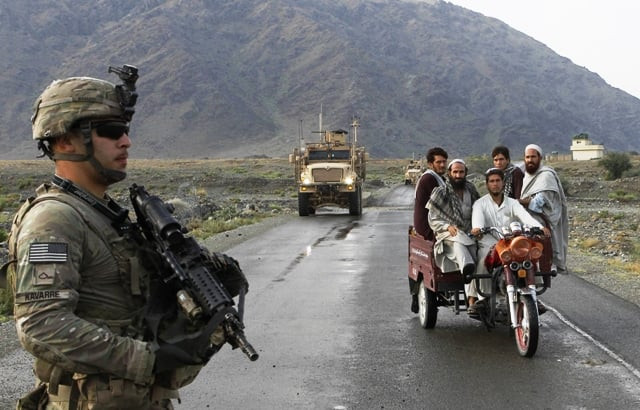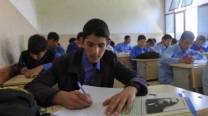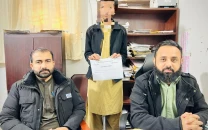Conference: Leave Afghanistan alone, says scholars
Speakers suggest Afghans be given freedom to resolve their conflicts.

Afghanistan must be recognised as an independent sovereign state and no foreign power should interfere in its internal affairs. The Afghani people should be allowed to enjoy freedom to resolve their conflicts through their own traditional ways and needs.
This was the consensus among scholars of different countries in a conference on “Post-Exit Afghanistan” held by the Islamabad Policy Research Institute and Han Seidel Foundation.
The scholars suggested that Pakistan should revisit its foreign policy and adopt a positive approach towards its neighbouring countries, while the United States should figure out a way to reduce its centrality from the region.
Dr Kayhan Barzegar, an Iranian scholar rejected any “understanding” between the US and Afghanistan and claimed that the US strategy in Afghanistan aimed at undermining Iran’s interest in the region.
“The relationship between Pakistan and Iran can severely be affected by Pakistan’s approach towards the Taliban as Iran and Pakistan stand on different grounds on the issue. Iran believes that the Taliban are pursuing their ideological agenda,” he said.
Dr Brian Katulis from the US criticised the US-led intervention in Afghanistan, saying that the US is “repeating mistakes and expecting different results”. However, he rejected the notion that the US had any interest in the “Great Game”.
He opined that the US was in no rush to leave Afghanistan and its current behaviour was governed by the impending economic crisis in which the Afghan War had a significant contribution.
Speaking on the occasion, Prof Hasan Askari Rizvi from Pakistan said indulgence in proxy wars was a dangerous practice and reliance on terrorist groups will lead to nothing but disaster. Referring to Pakistan’s role in Afghanistan, Rizvi opined that Pakistan should not play any role that is not appreciated by the Afghans.
“After the withdrawal of foreign forces from Afghanistan, Pakistan should focus on tribal areas, which have been severely affected by the conflict,” he added.
Dr Christian Wagner, a German scholar, said that the role of international organisations, such as the United Nations, would continue in Afghanistan beyond 2014, the deadline for withdrawal of US forces from the country.
“The role of organisations would be larger than that of the regional stake holders, who would be marred by clash of interests,” Wagner said.
However, Lt Gen Kamal Matinuddin was of the opinion that the role of Pakistan in Afghanistan would continue even after the withdrawal of forces in case the Taliban surrender to them. He also advised Pakistan to stay away from the Afghanistan’s internal conflicts in case a civil war broke out between the Taliban and security forces.
Published in The Express Tribune, October 7th, 2011.



















COMMENTS
Comments are moderated and generally will be posted if they are on-topic and not abusive.
For more information, please see our Comments FAQ